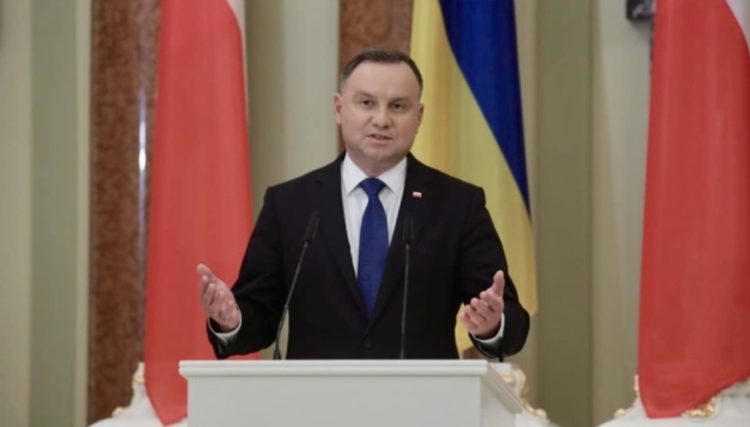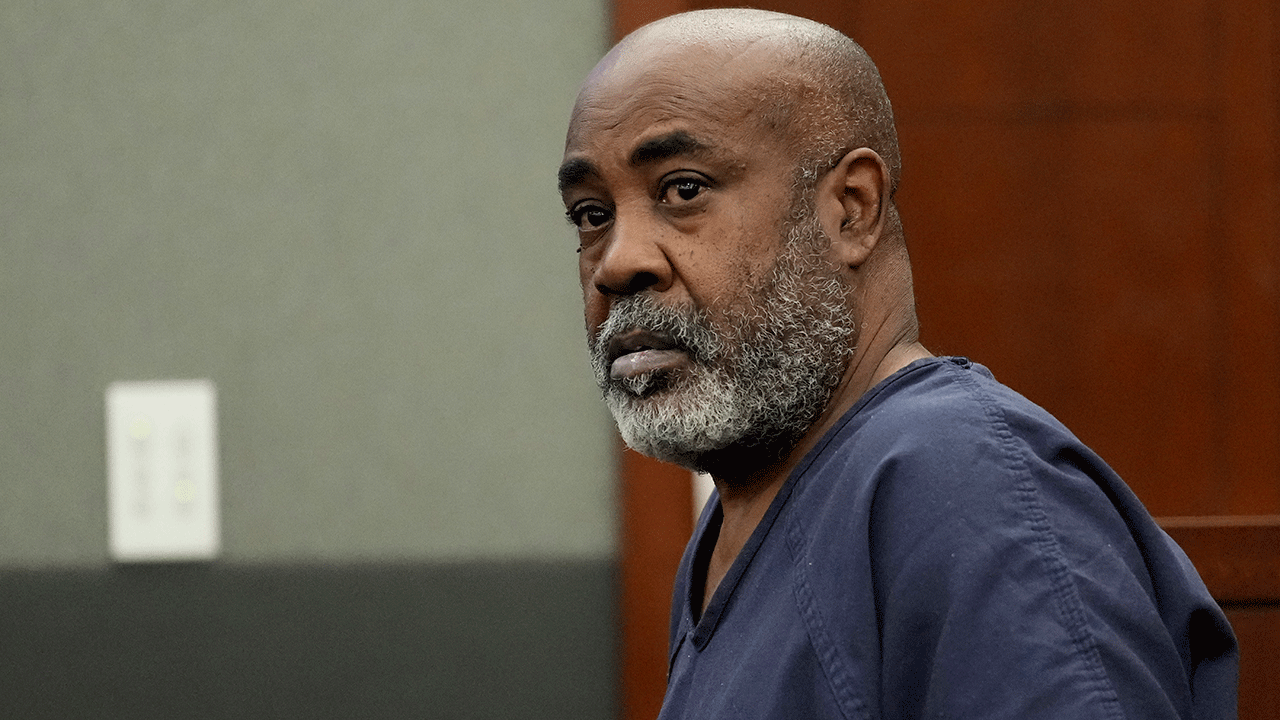Kamala Harris Is Imitating Biden’s Very Bad Media Strategy
Speaking to Ezra Klein shortly before Kamala Harris selected him as her running mate, Minnesota Governor Tim Walz made the case that the best way to win over Trump supporters isn’t with derision or mockery but grace. “Those folks at those rallies, you insult them at great peril,” Walz said. “Your neighbor is flying the [MAGA] flag, you insult them at great peril. Because they’re my relatives. They truly are, and I know them.” It was a response that captured the qualities that made Harris pick Walz: his decency, his humanity, and his connection, via his upbringing in the Midwest and his decades spent teaching in Nebraska and Minnesota, to rural communities. So when Walz was asked by a reporter after a recent rally about a group of his relatives who had recently endorsed Trump, he should have had a perfect answer at the ready. Instead, he said nothing.This is the Harris-Walz media strategy in a nutshell: Avoid the press at all costs, even when asked questions that should be layups. The Democratic ticket, or perhaps those who advise them, seem to believe that nothing good can come from talking to the media—that answering questions only invites negative coverage of pseudo-scandals (like Walz relatives endorsing Trump) instead of the real issues at stake in November. If this sounds familiar, it’s because President Biden employed the same media strategy in his reelection campaign. That didn’t work out so well for him—and it may not for Harris, either.Real issues are indeed at stake in this election—economic inequality, housing affordability, the climate crisis, Israel’s war on Gaza, and the migrant crisis, to name a few—but where Harris stands on them is one of the big mysteries of this campaign; her policy agenda is, at best, a rough sketch of a first draft of an actual agenda. And this mystery only grows because she refuses to speak with the press, having only done one nationally televised interview—a joint sitdown with Walz—since becoming the nominee. Media scrutiny is good in and of itself. Interviews with serious journalists, as the Columbia Journalism Review’s Jon Allsop argued last month, “remain the best forum we have for stress-testing candidates’ positions and holding them to account.” That argument might not sway Harris’s team, but it’s also strategically unwise to avoid the media: The longer she goes without speaking one-on-one to the press, the more coverage she gets about her failure to speak to the press. In mid-August, Semafor’s Benjy Sarlin noted that her failure to do a sitdown was “becoming a thing,” and that hasn’t changed: On Friday, Axios observed that “Vice President Harris isn’t getting subjected to the media scrutiny typical for a presidential nominee.” Her efforts to circumvent the media are reinforcing the exact narrative that Donald Trump and his allies are pushing—that she’s not prepared to be president.It is undoubtedly true that the national media is less important than it has been in any presidential election in decades, if not 100 years or more. But that doesn’t mean it’s completely unimportant. Cable news and large newspapers like The New York Times and The Washington Post still have sway and influence. The media environment may be fractured—which has led both candidates to embrace online influencers more than actual journalists—but millions of people who vote pay attention to the very outlets that Harris is avoiding. Indeed, the interviews Harris has done are targeted and bypass large, national outlets: On Friday, she did two radio interviews, one with comedian Rickey Smiley and another with Angel Baby, who hosts a popular Spanish-language show on a Univision subsidiary in Phoenix. The biggest problem with Harris’s media strategy isn’t that she’s avoiding scrutiny, however. Though well founded, much of the hand-wringing from journalists is self-important and solipsistic. (While Harris should do far more interviews, the idea that she should reserve one day a week for sitdowns with the media, which NBC’s Chuck Todd floated in late August, is absurd.) Instead, the biggest problem with Harris’s media strategy is that it’s no different from the one employed by Biden during his disastrous reelection campaign.Biden was being shielded from the press in part because he had grown more gaffe-prone and was showing clear signs of aging. But it was also because the people running his campaign were convinced that outlets like the Times were out to get Biden; they believed that any scrutiny of his campaign, presidency, or general well-being was a sign that the media was not only biased but perhaps even rooting for Trump to buoy their bottom line.This was always a ridiculous idea. Yes, The New York Times has its flaws. But read its staff editorials—it is certainly not in the tank for Trump. Instead, the Biden campaign was guided by a premise that is hostile to the very practice of journalism: that the threat Trump poses to the country means that any scrutiny of Biden was unwarranted and unfair.

Speaking to Ezra Klein shortly before Kamala Harris selected him as her running mate, Minnesota Governor Tim Walz made the case that the best way to win over Trump supporters isn’t with derision or mockery but grace. “Those folks at those rallies, you insult them at great peril,” Walz said. “Your neighbor is flying the [MAGA] flag, you insult them at great peril. Because they’re my relatives. They truly are, and I know them.”
It was a response that captured the qualities that made Harris pick Walz: his decency, his humanity, and his connection, via his upbringing in the Midwest and his decades spent teaching in Nebraska and Minnesota, to rural communities. So when Walz was asked by a reporter after a recent rally about a group of his relatives who had recently endorsed Trump, he should have had a perfect answer at the ready. Instead, he said nothing.
This is the Harris-Walz media strategy in a nutshell: Avoid the press at all costs, even when asked questions that should be layups. The Democratic ticket, or perhaps those who advise them, seem to believe that nothing good can come from talking to the media—that answering questions only invites negative coverage of pseudo-scandals (like Walz relatives endorsing Trump) instead of the real issues at stake in November. If this sounds familiar, it’s because President Biden employed the same media strategy in his reelection campaign. That didn’t work out so well for him—and it may not for Harris, either.
Real issues are indeed at stake in this election—economic inequality, housing affordability, the climate crisis, Israel’s war on Gaza, and the migrant crisis, to name a few—but where Harris stands on them is one of the big mysteries of this campaign; her policy agenda is, at best, a rough sketch of a first draft of an actual agenda. And this mystery only grows because she refuses to speak with the press, having only done one nationally televised interview—a joint sitdown with Walz—since becoming the nominee.
Media scrutiny is good in and of itself. Interviews with serious journalists, as the Columbia Journalism Review’s Jon Allsop argued last month, “remain the best forum we have for stress-testing candidates’ positions and holding them to account.” That argument might not sway Harris’s team, but it’s also strategically unwise to avoid the media: The longer she goes without speaking one-on-one to the press, the more coverage she gets about her failure to speak to the press. In mid-August, Semafor’s Benjy Sarlin noted that her failure to do a sitdown was “becoming a thing,” and that hasn’t changed: On Friday, Axios observed that “Vice President Harris isn’t getting subjected to the media scrutiny typical for a presidential nominee.” Her efforts to circumvent the media are reinforcing the exact narrative that Donald Trump and his allies are pushing—that she’s not prepared to be president.
It is undoubtedly true that the national media is less important than it has been in any presidential election in decades, if not 100 years or more. But that doesn’t mean it’s completely unimportant. Cable news and large newspapers like The New York Times and The Washington Post still have sway and influence. The media environment may be fractured—which has led both candidates to embrace online influencers more than actual journalists—but millions of people who vote pay attention to the very outlets that Harris is avoiding. Indeed, the interviews Harris has done are targeted and bypass large, national outlets: On Friday, she did two radio interviews, one with comedian Rickey Smiley and another with Angel Baby, who hosts a popular Spanish-language show on a Univision subsidiary in Phoenix.
The biggest problem with Harris’s media strategy isn’t that she’s avoiding scrutiny, however. Though well founded, much of the hand-wringing from journalists is self-important and solipsistic. (While Harris should do far more interviews, the idea that she should reserve one day a week for sitdowns with the media, which NBC’s Chuck Todd floated in late August, is absurd.) Instead, the biggest problem with Harris’s media strategy is that it’s no different from the one employed by Biden during his disastrous reelection campaign.
Biden was being shielded from the press in part because he had grown more gaffe-prone and was showing clear signs of aging. But it was also because the people running his campaign were convinced that outlets like the Times were out to get Biden; they believed that any scrutiny of his campaign, presidency, or general well-being was a sign that the media was not only biased but perhaps even rooting for Trump to buoy their bottom line.
This was always a ridiculous idea. Yes, The New York Times has its flaws. But read its staff editorials—it is certainly not in the tank for Trump. Instead, the Biden campaign was guided by a premise that is hostile to the very practice of journalism: that the threat Trump poses to the country means that any scrutiny of Biden was unwarranted and unfair. Biden wasn’t being hidden from the press because he was old but because his advisers were engaged in a self-destructive feud with the media. That feud has continued now that Harris is the nominee.
This is troubling in and of itself. But it’s also troubling because it suggests that the people running the Biden campaign still have influence in the Harris campaign. They shouldn’t. They ran the most inept reelection campaign in recent memory, one that was racing toward a Trump landslide. None of these people have any business being anywhere near an election that’s this consequential. Instead, they’re using the same silly ideas—the Times is out to get Harris!—to guide their decisions, embracing sycophants, TikTokers, and YouTubers while hiding their intelligent candidate from intelligent reporters at major outlets that are followed by millions of intelligent voters. So who, exactly, is insulting whom here?
Harris is more than capable of talking to the press and taking clear stances on issues (even if she’s developing a habit of changing her mind, even on issues that almost no one is talking about). She should talk to the press more. She should do it to show that she can run the country, which she can. She should do it to show that she understands policy, which she does. She should do it because it will generate media attention that will almost certainly benefit her campaign. But she should also do it to show that she isn’t just running the same campaign that was losing handily to Trump six weeks ago. Because right now, that’s exactly what she’s doing.



